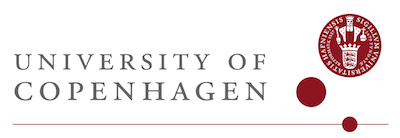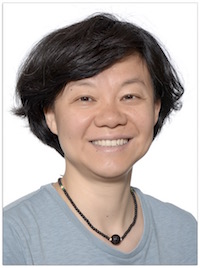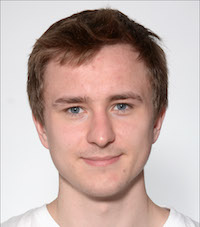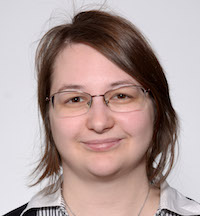University of Copenhagen - Center for Chromosome Stability
|
|
The CCS (https://ccs.ku.dk/) was established in 2015 by a 10-year grant funded by the Danish National Research Foundation as part of their Centers of Excellence programme. The CCS is based in the Department of Cellular and Molecular Medicine, Panum Institute, and has strong connections to the Nordea Center for Healthy Aging, the Department of Biology and the NNF Center for Protein Research.
The overarching goal of the CCS is to conduct basic research to understand the causes and consequences of chromosomal instability. More specifically, the main focus is on regions of eukaryotic genomes that are intrinsically unstable, including chromosomal fragile sites, repeated DNA sequences and telomeres. An important longer term aim is to understand how genome instability triggers age-associated disorders in humans, including cancer, neurodegeneration and impaired fertility. The CCS is composed of 7 research teams who possess complementary expertise in genetics, biochemistry and molecular/cell biology. Ian Hickson and Ying Liu are both group leaders in the CCS, and Ian Hickson is the CCS director.
|
Role in the AntiHelix project
The UCPH Antihelix team (Hickson and Liu groups) will carry out the analysis of human helicases (e.g. BLM and RTEL1) and their interacting partners using methodology in the fields of molecular & cellular biology, biochemistry and biophysics.
The AntiHelix Team
| Ying Liu | ESR5 Supervisor | ying@sund.ku.dk |
|---|
| Ian D. Hickson | ESR6 Supervisor | iandh@sund.ku.dk |
|---|
| | Administrator | |
|---|
| Szymon A. Barwacz | ESR5 | szymon@sund.ku.dk |
|---|
| Veronika Baráth | ESR6 | veronikab@sund.ku.dk |
|---|
|
Ying Liu
|
Ying Liu (MD, PhD) (https://icmm.ku.dk/english/research-groups/liu-group/research-group/) graduated from Tongji Medical University in Wuhan, China in 1995. She obtained her PhD degree from the University of Oxford, UK, in 2002. From 2002 to 2010, she carried out genetic and functional analysis of a large panel of colorectal cancer cell lines in the CRUK Molecular Oncology Laboratories at the Weatherall Institute of Molecular Medicine, John Radcliffe Hospital, Oxford. She moved to Copenhagen in 2010 and is currently an Associate Professor in the Department of Cellular and Molecular Medicine at the University of Copenhagen, and is a group leader in the CCS. She has published over 30 research articles, with an H-index of 20. She is an Associate member of Faculty 1000 (F1000).
Within the AntiHelix consortium, she is the supervisor of ESR5, a member of the Supervisory Board, a co-organiser of Research Theoretical Course #3, and will act as the Training Coordinator.
|
|
Ian D. Hickson
|
Ian David Hickson (PhD, FRS) (https://icmm.ku.dk/english/research-groups/hickson-group/) obtained his PhD from the University of Newcastle upon Tyne, UK, in 1982. Following postdoctoral work, he worked as a Senior Scientist and then Principal Scientist for the Imperial Cancer Research Fund (now Cancer Research UK) at the Weatherall Institute of Molecular Medicine, John Radcliffe Hospital, Oxford. From 1990, he became Professor of Molecular Oncology in the University of Oxford, and Deputy Director of the Oxford Cancer Centre. In 2010, he took up the post of Professor of Molecular Aging and Program Leader position in the Center for Healthy Aging, University of Copenhagen. In 2015, he was awarded a grant by the Danish National Research Foundation (DNRF) to establish the Center for Chromosome Stability (CCS). He has published over 300 research articles, with an H-index of 84. He is a Fellow of the Academy of Medical Sciences (UK), a Fellow of the Royal Society (UK) and a member of the European Molecular Biology Organization (EMBO) and Faculty 1000 (F1000).
Within the AntiHelix consortium, he is the supervisor of ESR6, Leader of Work package 2, and will act as a Deputy Coordinator, providing a mentoring role due to his seniority and long-standing experience in managing scientific projects.
|
|
Szymon Barwacz
|
Szymon obtained his Bachelor degree in Biotechnology (2016) and Master degree in Molecular Biotechnology (2018) at the Jagiellonian University in Poland. During his undergraduate studies, he has worked on the development of novel anticancer therapies for breast, lungs and pancreatic cancers. He has also participated in a Summer Internship Program In ‘Epigenetics, Cellular Plasticity and Stem Cells’ in Munich (2017), where he investigated treatment for acute myelogenous leukaemia or acute lymphocytic leukaemia. Following his master degree, he worked in Selvita, a biotech company in Cracow, as a research assistant. During this time, he performed the optimization and validation of tests involved in the preclinical analysis of bio-medicinal products in GMP and GLP standards (2019).
He joined the AntiHelix consortium as ESR5, working on the functional roles of different DNA helicases in response to replication stress.
|
|
Veronika Baráth
|
Veronika Baráth received a Bachelor's Degree in Chemistry from the University of Pannonia (Veszprém, HU, 2015). She then pursued a Master's Degree in Medical Biotechnology focusing on molecular biotechnology at the University of Pécs (HU). After graduation (2017), she joined the Motor Enzymology Research Group at Eötvös Loránd University (Budapest, HU) as an assistant research fellow (2017-2019), where she took part in research projects focusing on DNA repair and recombination.
She joined the AntiHelix consortium as ESR6, working on mechanistic studies of the BLM complex in mitosis.
|








 This project has received funding from the European Union’s Horizon 2020 research and innovation programme under the Marie Skłodowska-Curie grant agreement No 859853
This project has received funding from the European Union’s Horizon 2020 research and innovation programme under the Marie Skłodowska-Curie grant agreement No 859853
